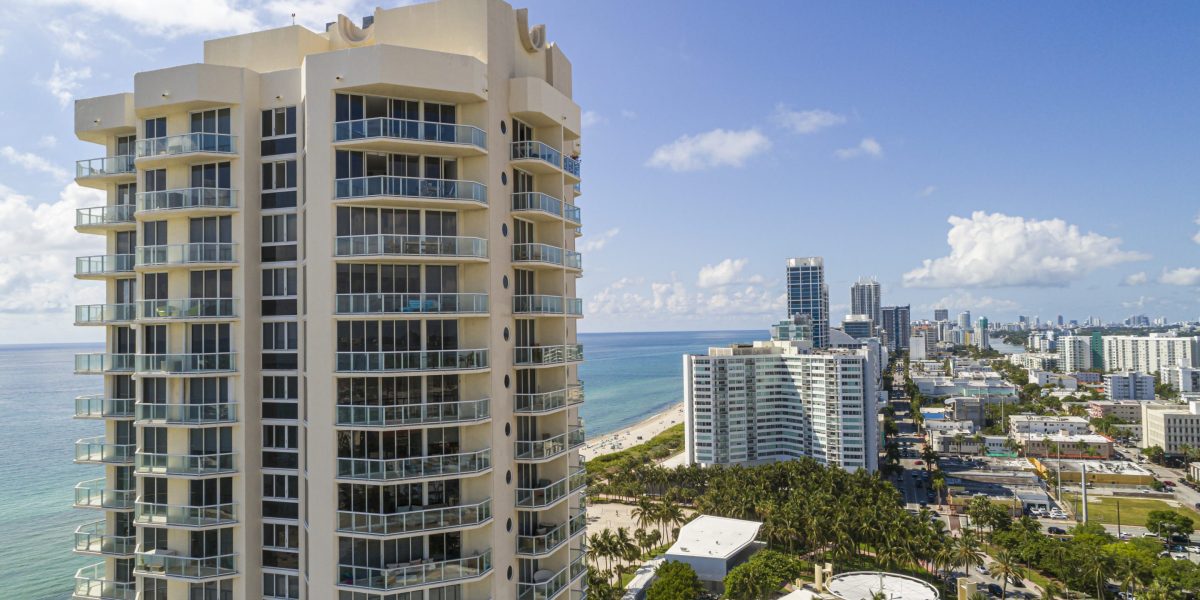

We may be missing millions of homes, but there seems to be enough condominiums to go around in Florida and Texas. Boomtowns in the two states are seeing their supply of condos skyrocket, and prices fall, according to an analysis from Redfin. But would-be buyers should probably beware the looming annoyance of rules, fees, and searing weather risk.
In Tampa, the number of condos for sale leaped around 57% in July from a year earlier. In Houston, the number of condos for sale rose close to 36% in the same time period. In both metropolitan areas, prices dropped in response. The median sale price for condos in Tampa fell almost 5% in a year, to $237,750; in Houston, the typical price plunged 6.5%, to $159,000.
It’s happening in Austin, Dallas, Fort Worth, San Antonio, Fort Lauderdale, Jacksonville, Miami, and Orlando, all by varying degrees. But it’s not exactly reflective of what’s happening nationally. “Nationwide, condo inventory is increasing and pending sales are falling–though not as much as in Florida and Texas–and prices are still rising,” the analysis stated.
So why is it happening in these cities, once billed as pandemic darlings? Well, increasingly high homeowners association fees and soaring insurance costs are making it so nobody wants to deal with a condo anymore.
In Florida, HOA fees are especially a problem. At the moment, they’re more than 15% costlier in Tampa, Orlando, and Fort Lauderdale compared to last summer. “HOA fees are increasing because the Surfside condo collapse led to additional maintenance requirements for condos, and because of rising insurance costs,” Redfin said. (During the summer of 2021, in a Miami suburb, a 12-story beachfront condominium tower collapsed; 98 people died. Investigators found several issues with how the building was constructed, and it spurred new requirements.)
Then there are insurance costs, alluded to above, as the two are intertwined. The frequency and severity of extreme weather events are increasing. Florida, for one, has lost several insurers as they flee the state, which only worsens the issue for homeowners because they either face wildly high costs or struggle to find coverage at all. “Those rising costs, along with the natural disasters themselves, are scaring off condo buyers and motivating condo owners to sell,” Redfin said.
Two other, smaller, reasons behind the glut of condos in Texas and Florida boomtowns: Fewer investors and a construction boom. Investors are buying fewer condos all over and an uptick in apartment construction across the Sunbelt is only adding to the fact that these units are already piling up.
“The condo market isn’t moving,” a Tampa-based Redfin agent said in the analysis. “Most of today’s buyers want move-in ready single-family homes. It’s much more difficult to sell a condo. Buyers are aware we’re at somewhat of a tipping point for condos, and that their value may continue to decline as HOA fees rise and people grow more wary of buying in a waterfront building.”
However, while the president of CoreLogic’s global insurance solutions business, once told me that updates to building codes wouldn’t have an immediate effect, they’d matter in the long run. Buildings would be more resilient, and simply speaking, it would bring down insurance costs. Still, we’re not there yet—and as it stands, natural disasters aren’t going away. Landlords are worried, builders are worried about buyers who are worried, and it’s a multibillion problem each year.
In our new special issue, a Wall Street legend gets a radical makeover, a tale of crypto iniquity, misbehaving poultry royalty, and more.
Read the stories.













